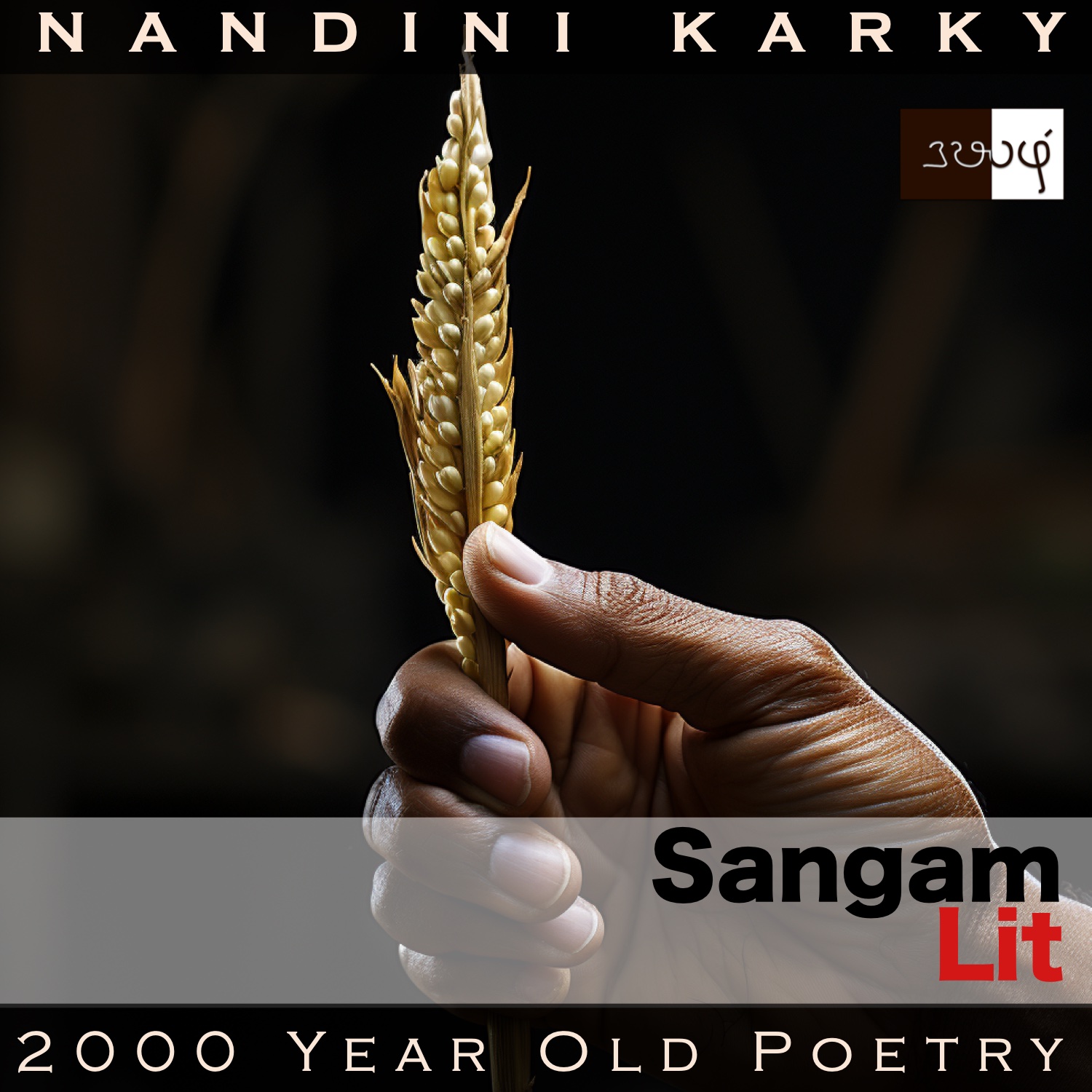Podcast: Play in new window | Download
Subscribe: Apple Podcasts | Spotify | Amazon Music | Android | iHeartRadio | Email | TuneIn | RSS | More
In this episode, we learn of the precise expectation of a poet from a patron, as portrayed in Sangam Literary work, Puranaanooru 208, penned to the Velir King Athiyamaan Nedumaan Anji by the poet Perunchitharanaar. Set in the category of ‘Paadaan Thinai’ or ‘Praise’, the verse reveals nuances in the art of gifting.

‘குன்றும் மலையும் பல பின் ஒழிய,
வந்தனென், பரிசில் கொண்டனென் செலற்கு’ என
நின்ற என் நயந்து அருளி, ‘ஈது கொண்டு,
ஈங்கனம் செல்க, தான்’ என, என்னை
யாங்கு அறிந்தனனோ, தாங்கு அருங் காவலன்?
காணாது ஈத்த இப் பொருட்கு யான் ஓர்
வாணிகப் பரிசிலன் அல்லென்; பேணி,
தினை அனைத்துஆயினும், இனிது அவர்
துணை அளவு அறிந்து, நல்கினர் விடினே.
Another song expressing displeasure at a king’s attitude. The poet’s words to this Velir King Athiyamaan can be translated as follows:
“As I had said, ‘Leaving behind many a peak and many a hill, I came here, to win my gift before I leave’, with kindness and grace, he has said, ‘Ask him to take this and part away’. But does that mighty, invincible protector really know who I am? To accept this gift that has been rendered without seeing me, I am no trading supplicant. If he were to shower his attention and get to know my capabilities and then give, I would gladly accept even a gift as small as a millet seed!”
Time to delve into the details. The poet starts by elaborating on why he’s there at the king’s court, saying he has taken a great effort crossing many peaks and hills to arrive there, so as to seek gifts from him and then leave. Hearing about this, the king decides to grant the poet a gift. Maybe because he was held up in a lot of work or for some other unavoidable reason, the king sends this gift through an intermediary to the poet. So, the poet asks in wonder, ‘How could that great king do this?’. Strongly declaring that he’s no trader who’s just interested in receiving an object, he refuses that. The poet concludes with the words, ‘A gift need not be as huge as this. Even if the king can only give me a gift as small as a millet seed, that I would accept with delight, if he were to truly get to know me and understand my intelligence before he gives the gift’.
No doubt the poet is in an impoverished state, if he has been travelling this far to reach the king’s court and win his grace. Not only that, only recently, we saw how he was insulted by Ilavelimaan. Even though the poet is in such a dire state, he clearly illustrates that he is a man of principles. If it was a supplicant who only cared that he got something not how he got it, then he might have accepted whatever was thrown his way and would be off. But he’s not remotely like that, the poet clarifies. As a parting shot, the poet tells the king that he expects not elephants and chariots, but even a gift as small as a millet seed would do, if the king has seen, conversed with, and understood the person who has come seeking to him. An ancient verse that has at its core, a lesson in human resources management, namely that it’s not only money that matters to a sincere worker but recognition and appreciation for their unique contribution to the organisation!




Share your thoughts...